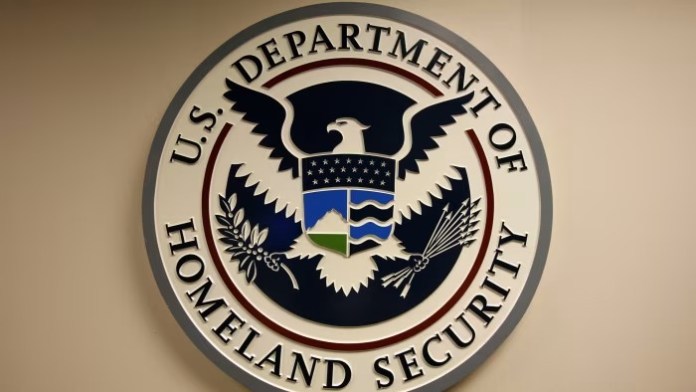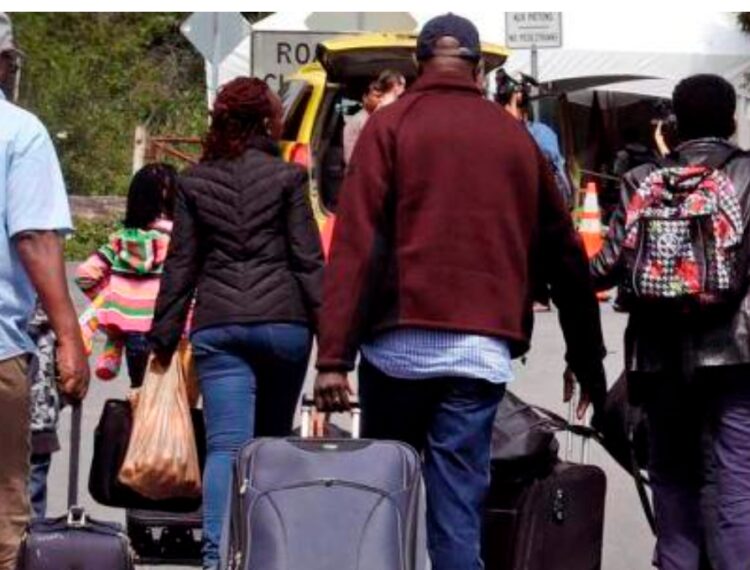News
Failed lawyers, litigants responsible for attacks against judges — Justice Tsoho

The Chief Judge of the Federal High Court of Nigeria, Justice John Tsoho, has said that failed lawyers and litigants are responsible for the recent virulent attacks against judges of the court across the country over their judgements.
He lamented that the court has been worse for the attacks on social media arising from its wide territorial and vast subject matter jurisdiction.
Speaking at the 2024 Conference of Federal High Court Judges and commencement of the new legal year on Monday in Abuja, Justice Tsoho warned those vilifying judges to desist in their own interests.
The Chief Judge, who expressed bitterness over the trend, called on the Nigeria Bar Association NBA to use the instrument of the Code of Professional Ethics to deal with the erring lawyers desecrating the temple of justice.
He said: “I am compelled to seriously deprecate the current pervading attitude of some lawyers, litigants and public commentators of launching virulent attacks in the media against judges and their decisions.
“The Federal High Court regrettably, has been worse for it, arising from its wide territorial and vast subject matter jurisdiction.
“This trend seems to have become a ready means of seeking fame, employed mostly by failed lawyers and litigants. They do not realise that the field of law and indeed adjudication, is not a pedestrian affair.
“I wish to use this rare opportunity of voicing out, which comes just once in a year, to comment at length on this canker, as it poses great danger, not only to the Nigerian Judiciary but to the Rule of Law generally.
“Firstly, we need to remind ourselves that courts of law are established by the Constitution of the Federal Republic of Nigeria, the Supreme Law of the Land and are vested with judicial powers by Section 6 thereof.
“Similarly, judges, particularly of the Superior Courts of record, are appointed pursuant to the provisions of the Constitution and are obligated to discharge their duties in accordance with the Constitution and enabling statutes.
“Secondly, there exists the hierarchy of courts, which serves to scrutinise the adjudicatory role of the courts in ascending order. Thus, appeals lie from the High Courts to the Court of Appeal and ultimately to the Supreme Court of Nigeria.
“Consequently, litigants who are dissatisfied with decisions of lower courts are expected and indeed required to express their grievance through the appeal process.
“The right of appeal is constitutionally guaranteed, with regard to both civil and criminal litigation. The essence of this narration is to demonstrate that the legitimate manner of challenging a court decision is through the appeal process.
“If, however, a litigant genuinely and strongly feels that a judge has misconducted himself in handling the case, such litigant may then quietly make a written complaint to the National Judicial Council (NJC) for redress.
“There is hence no room in law for holding press conferences to criticise judicial decisions. The implication therefore is that those who attack decisions of judges in the press are neither lawyers nor law-abiding, but violators of law.
“It is significant to stress the point that the existence of the appeal structure itself admits of the diverse nature of opinions and thoughts in society, which could occur in the decision-making process.
“Therefore, it is not a crime that there could be concurring or divergent views of superior courts on a decision made by a judge. That our decisions are not final is a blessing. With the industry and brilliance of our judges, appeals are welcome to test the veracity and tenacity that distinguish our judges.
“However, it is very concerning that the common situation these days is that some parties, after appealing the decision of a judge, proceed to petition the NJC on the same issue.
“The question then is: Which of the steps taken does that party accord priority to? This attitude reflects nothing else but malice. Judges will not be cowed by such antics. Worse still, some discuss pending cases in the media, notwithstanding that such cases are sub-judice.
“There can also be a cultural reflection on the growing attacks against courts and judges when it is realised that a good number of judges are aged above 60 years and are hence senior citizens in their own right.
“Yet, it is mostly youths in the age bracket between 25 and 30 years that come to the public arena to heap insults on these elders, some of whom are community leaders or from royal families.
‘This is an abominable act in refined cultural settings, as traditional society approves only of the dignified reproach of elders, even where they err.
“Thus, it is easily discernible that youths who indulge in such conduct display a lack of decent cultural background. It is, therefore, by their fruits that they are known.
“A situation where the legally recognised means of challenging court decisions is being increasingly sidelined in favour of approach by mob mentality is dangerous and worrisome.
“It is more so, as those promoting it are not well-informed but act in concert with some disgruntled lawyers. It is very sad that certain lawyers, with a few senior lawyers among them, have willingly offered themselves as errand boys to some politicians to malign judges.
“They secretly seek to influence judges but hypocritically turn around to condemn judges when their clandestine overtures to judges are rebuffed. In such situations, their supposition is that the judge must have been compromised by the opponent. They merely appear sanctimonious, while levelling unfounded allegations of bribery against judges in humongous sums of money.
“None of them has ever proven such allegations, but nevertheless, they succeed in inciting the gullible society against the maligned judges. It is bad enough that they mostly use faceless media platforms to orchestrate their malicious campaigns.
“They publicly advertise their ignorance by vociferously calling for the immediate ‘sack’ of judicial officers, as if the officers are mere domestic staff. They are oblivious that the appointment of Judicial Officers has a statutory flavour and they cannot be removed unless there is a proven case of serious misconduct.
“The ugly trend must be halted, if the judiciary is to survive. This is a task for well-meaning members of the legal profession, who owe their lives to the profession.
“For the greedy and shameless renegades, however, the collapse of the legal profession itself will not make any difference, as they would readily survive by touting.
“At this juncture, we call on the Nigerian Bar Association to scrutinise its ranks and uproot the misfits, who are causing incalculable damage to the legal profession.
“We wish to further draw attention to the fact that there are extant laws that can be called in aid to check the malicious tendency. Both the Criminal Code and the Penal Code provide punishment for malicious or injurious falsehood.
“For lawyers, the Rules of Professional Conduct can apply. On the part of judges, there is a crying need to revive the exercise of the power of contempt to protect the integrity of their persons and the courts.
“Their reluctance to employ this potent weapon should not be seen as a sign of ignorance or cowardice.
“In another vein, I consider it pertinent to briefly shed light on the commonly misconstrued phrase of “bail bond.” Most people interpret the “bond” entered into as a bail condition, to mean actual payment of money. When bail is “granted in the sum of N1 million,” for instance, it does not mean that the surety is there and then expected to deposit that sum of money with the Court.
“Rather, the surety is to enter into a bond, which is a promise, an undertaking or agreement, to the effect that the person undergoing trial would consistently attend court and would not escape until the trial is concluded.
“If however, the person escapes without satisfactory explanation, the surety will be held to pay the promised money (the value of the bond) to the court.
“This is a voluntary decision by the surety; hence, unless he is trusting of the person under trial, he is not obliged to execute the bail bond.
“It is therefore a matter of ignorance or mischief to ascribe a contrary interpretation to the matter of bail bond. This explanation is meant to enlighten the misinformed so that they will refrain from unduly vilifying Judges regarding the issue of bail bonds.
“As we reflect on the achievements of this past year, I extend my sincere gratitude to the National Judicial Council and the Federal Judicial Service Commission, all under the able leadership of His Lordship, The Honourable, The Chief Justice of Nigeria, Honourable Justice K. M. O. Kekere-Ekun, for their unwavering support.
“Your commitment in ensuring the smooth operation of our Judicial system has been invaluable. We are profoundly grateful to the Bi-Cameral Committees of the National Assembly on Judiciary, Human Rights and Legal Matters for their unflinching goodwill with regard to our budgetary interests.
“We equally appreciate the continued understanding and support in diverse ways, by the Honourable Attorney-General of the Federation and Minister of Justice.
“We also express deep gratitude to critical stakeholders for their ready collaboration with us in the area of training. These include: the National Judicial Institute (NJI), The British High Commission (BHC), the United Nations Office on Drugs and Crime (UNODC), the Nigerian Communications Commission (NCC), Nigerian Shippers Council, Asset Management Corporation of Nigeria (AMCON), National Deposit Insurance Corporation (NDIC), Federal Inland Revenue Service (FIRS), Economic and Financial Crimes Commission (EFCC), Central Bank of Nigeria (CBN) and several others.
“Your guidance, collaboration, and dedication to the principles of Justice have enabled us to navigate challenges and make significant progress in strengthening the rule of law in our nation.
“As we navigate the challenges confronting the judiciary and the Federal High Court in particular, it is imperative that we adhere to best practices in justice delivery.
“Judges must maintain the highest standards of impartiality and fairness in all their judicial functions. Decisions must be based solely on the law and the evidence presented, without fear or favour.
“We must strive to resolve cases expeditiously while ensuring that justice is not compromised. Delays in the administration of justice erode public confidence and undermine the rule of law.
“The judiciary must be transparent and accountable in all its operations. This includes providing access to court records and information and ensuring that judicial processes are open and accessible to the public on application.
“The protection and promotion of human rights are fundamental to the administration of justice. Judges must be vigilant in safeguarding the rights of all individuals, regardless of their background or status.
“In this new legal year, I call upon all judges and staff of the Federal High Court to rededicate themselves to the pursuit of justice. Let us work together to uphold the integrity and independence of the judiciary and to ensure that the Federal High Court remains a beacon of hope for all who seek justice before it.
“I also urge all stakeholders in the justice sector, including the bar, law enforcement agencies, and other agencies of government, to collaborate with us in our efforts to strengthen the wheels of justice in Nigeria.
“I am confident that with our collective commitment and dedication, the Federal High Court will continue to play a pivotal role in upholding the rule of law and promoting a just and equitable society for all Nigerians.”
News
Banditry:” I was chained for 32days while in their den, killed my wife as I watch-Nat’l Assembly DD narrates experience

A Deputy Director at the National Assembly Commission, Michael Adesiyan, has narrated his near-death experience in the hideout of bandits.
Adesiyan was abducted from his Chikakore residence in Kubwa, a suburb in the nation’s capital, alongside his wife on January 26th, 2025 before he was rescued on April 7.
The civil servant narrated his ordeal to journalists at National Counter-Terrorism Centre, Abuja, when fresh 60 kidnapped victims, who were rescued by the security forces were presented to the National Security Adviser, Nuhu Ribadu.
Adesiyan called on the federal government to immediately look for a way to disarm the criminals and educate them, and possibly reintegrate them back to the society, adding that “the bandits don’t know what they are doing.”
According to him, his abductors were between the ages of 17 and 20, and they were stark illiterate people who were not aware of what they were doing, and could not even count N1 million let alone hundreds of millions they were asking as ransom.
He specifically said they were chained for 32 days he spent in the abductors’ den, adding that they killed his wife in his presence.
“I want to thank the government for rescuing us. I was chained for 32 days. I want to advise that the government should find away to disarm or arrest them (bandits), instead of confronting them.
“They can send them to school. Some cannot even count one million. They are stark illiterates. They are young people of ages 17 and 21. They don’t know what they are doing.
“So if they can bring them out, if they want to learn work (apprenticeship), they can let them do, retrain them, reorientate them, that they can be useful to themselves.
“My advice is to, instead of killing them, arrest them, reorientate them. If you want to educate them, they can then work. That’s my advice,” he said.
When asked why they were in a rush to tell their family members to pay ransom, he said, “When they kill someone in your presence, you would give them anything they want.
“For instance, they killed my wife in my presence. If they request your head in that situation, you will give it to them.”
Earlier, while giving a breakdown, the Coordinator, National Counter-Terrorism Centre, Maj. Gen Adamu Laka said the victims comprising 35 males and 25 females, were rescued on Monday April 7, by troops of 1 Division of the Nigerian Army, in a coordinated operation supported by other security and intelligence agencies.
News
US revokes more than 500 foreign student visas

No fewer than 500 foreign students have had their US visas revoked in recent weeks, as Donald Trump’s administration doubles down on its crackdown on universities.
Nafsa, a network of universities and individuals engaged in international education and exchanges, told the Financial Times on Tuesday it had identified 500 visa revocations by compiling reports from higher education institutions across the US.
“This is uncharted territory on so many levels,” Fanta Aw, chief executive of Nafsa said. “It’s at an unprecedented level and it’s quite concerning because there is a lack of clarity which is creating anxiety.”
The Department of Homeland Security and the Department of State are implementing a wave of actions against university students across the country. Institutions are often unaware that their students have been targeted so cannot easily track their cases or offer support.
The state department’s visa revocations require students to leave the US and reapply for visas after fresh scrutiny. Separately, the homeland security department has triggered “status termination”, Aw said. In both cases, she added, the processes for appeal were unclear.
“There will be a tsunami of legal cases coming,” she warned.
Multiple reports have arisen of foreign students and university employees being taken to detention centres and subsequently facing deportation.
A number of universities have issued warnings to students and faculty against travelling abroad for fear of arbitrary questioning or detention on returning to the US.
Aw said reports of visa revocations had spiralled from students at elite universities — including Stanford, Harvard and Columbia — to a far wider range of higher education institutions across the country. They targeted many different nationalities for a variety of reasons, including for traffic violations.
Since Trump’s election, a growing number of US-based faculty have sought jobs elsewhere, and increasing numbers of high school and college students are applying to universities abroad.
The Central European University in Vienna on Tuesday said US applicants for its programmes in the upcoming academic year had jumped one-quarter, while the University of Toronto reported a “meaningful” rise compared to past years.
On Monday, 16 associations of US universities called for a briefing from the homeland security and state departments, after uncoordinated orders from the authorities requested students to “self-deport”.
The group said the orders contained “no additional information about how to appeal this decision or verification to ensure that mistakes are not being made in identifying these individuals”.
The association warned of the implications for the country given the 1mn international students attending US colleges and universities, who contributed an estimated $43.8bn to the economy, created 375,000 domestic jobs and contributed “to institutions’ intellectual vibrancy and the global literacy of domestic students”.
The homeland security department did not reply to a request to comment.
News
Japa: Nigeria loses $366m as 16,000 doctors move abroad

The Coordinating Minister of Health and Social Welfare, Prof Muhammad Pate said over 16,000 Nigerian doctors have left the country in the last five to seven years to seek greener pastures in other countries.
Prof Pate also said the doctor-to-population ratio is now 3.9 per 10,000 in the country, while the estimated cost of training one doctor exceeds $21,000.
This was as he lamented that nurses and midwives who left have also thinned the number of healthcare workers in the country.
The minister disclosed this at the seventh annual capacity building workshop of the Association of Medical Councils of Africa in Abuja on Tuesday with the theme, “Integrated healthcare regulation and leadership in building resilient health systems.”
According to him, an increasing number of Nigeria’s talented healthcare professionals aspire to work in other countries, driven by factors such as economic opportunity, better working conditions, more advanced training, and superior research environments abroad.
He said the migration of health professionals from developing countries is not new, but it has accelerated in recent years.
“In Nigeria alone, over 16,000 doctors are estimated to have left the country in the last five to seven years, with thousands more leaving in just the past few years. Nurses and midwives have also thinned in numbers. The doctor-to-population ratio now stands at around 3.9 per 10,000—well below the suggested global minimum.
“But this trend is not just about people leaving. It represents a fiscal loss.
The estimated cost of training one doctor exceeds $21,000—a figure that reflects the magnitude of public financing walking out of our countries. It deeply affects our health systems—leaving many of our rural communities critically underserved.”
He, however, emphasised that the phenomenon offers an opportunity to rethink and reshape the policies, to manage the valuable health workforce in ways that benefit our countries first and foremost.
“In Nigeria, guided by the vision of President Bola Ahmed Tinubu, who was appointed by African Heads of State as the AU’s Continental Champion for Human Resources for Health and Community Health Delivery—we are pursuing a new direction. His vision is that Nigeria becomes a prosperous, people-oriented country, contributing to a peaceful and thriving continent. Not a standalone Nigeria, but a Nigeria that is interlinked with all our neighbours and sister countries. Under the Renewed Hope Agenda, and within the framework of the Nigeria Health Sector Renewal Investment Initiative, we have embraced a new path—combining strategic realism with visionary ambition.
“The National Policy on Health Workforce Migration is a cornerstone of this path. It is designed to address health workforce migration with dignity—dignity for health workers, for the country, and for the profession. It is data-driven, evidence-guided, and signals a clear direction. This is not a restrictive policy, nor is it one born out of resignation. We understand that the global health workforce shortage is at 18 million, and countries in the Global North face their own human resource crises due to demography and other factors. But our response is based on stewardship—balancing the rights of health professionals to seek opportunities abroad with our duty to protect the integrity and viability of our national health system.
“The objectives are clear. To retain and motivate health workers currently serving in Nigeria—thousands of whom work under difficult conditions; to establish ethical norms and explore bilateral frameworks for recruitment, aiming to correct global asymmetries; to expand training capacity—not only for domestic needs, but to contribute to global workforce needs, to enable structured reintegration for the thousands of Nigerian professionals abroad; and to strengthen governance, improve regulatory coordination, and build real-time data systems.”
He urged Africa to lead in forging a new global compact on health workforce mobility—anchored in pan-African training and accreditation standards; shared planning tools, evidence, and data; continental negotiating platforms with destination countries; and sustained investments in the people who care for our people.
The President of AMCOA, Prof Joel Okullo, stressed the importance of collaboration among African countries to tackle healthcare challenges and improve regulation and leadership across the continent.
He expressed the belief that the outcome of the workshop would produce actionable strategies to improve healthcare services across Africa.
“This year’s theme highlights our commitment to tackling the diverse array of challenges within the health regulatory landscape. It seeks to empower AMCOA members and associate members with the wisdom and skills needed for informed strategic and operational decisions in the coming year.
“In this intricate regulatory tapestry, our discussions will illuminate strategies and insights that will bolster regulators’ capabilities. Our focus will revolve around managing health workforce mobility, improving credentialing and information data management systems
“Let us embark on this journey with enthusiasm and a shared sense of purpose. Our collaborative efforts today and over the next few days will lay the groundwork for transformative changes that will resonate across the healthcare landscape of Africa,” he noted.
The Registrar of the Medical and Dental Council of Nigeria, Dr Fatima Kyari, while welcoming participants to the event, noted that it was Nigeria’s first AMCOA workshop while commending the alignment of leadership towards the shared goal of patient safety.
The Board Chairperson of MDCN, Prof Afolabi Lesi highlighted the need for healthcare regulators to uphold global standards while adapting to local contexts.
Lesi, who is also the Chairman of the Local Organizing Committee for the workshop addressed the challenges of fragmented professional relationships that hinder implementation and compromise patient care.
“The reality is that while we have committed and clear directions at the level of governance, implementation of actions is bedeviled by the fractioned and fractious relationship among health workers who ought to be working as a team, with the patient (well-being and safety) as the primary focus of all our actions,” he said.
Photo caption: Members of AMCOA; the Registrar of MDCN, Dr Fatima Kyari; the Board Chairperson of MDCN, Prof Afolabi Lesi; the Coordinating Minister of Health and Social Welfare, Prof Muhammad Pate; the Minister of State of Humanitarian Affairs and Poverty Reduction, Dr Yusuf Sununu; and other AMCOA members.
-

 News16 hours ago
News16 hours agoOERAF held memorial lecture on conflict resolution, security/safety of community in Nigeria
-

 News21 hours ago
News21 hours agoTRADE WAR! U.S. angry over Nigeria’s import ban on 25 products
-

 News21 hours ago
News21 hours agoINTERVIEW: Introduction of Child Rights Curriculum In Nigerian Universities Will Take CRA to Families – Dr Obiorah Edogor
-

 News1 hour ago
News1 hour agoUS revokes more than 500 foreign student visas
-

 News15 hours ago
News15 hours agoHoR Minority Caucus decries killings in Plateau, Benue states, urges immediate presidential decisive actions
-

 News8 hours ago
News8 hours agoBandits have seized control of 64 communities in Plateau – Gov Muftwang
-

 News3 hours ago
News3 hours agoIbas picks administrators for 23 Rivers LGs(SEE list)
-

 Economy7 hours ago
Economy7 hours agoMobile Money transactions hit $1.68trn in one year















